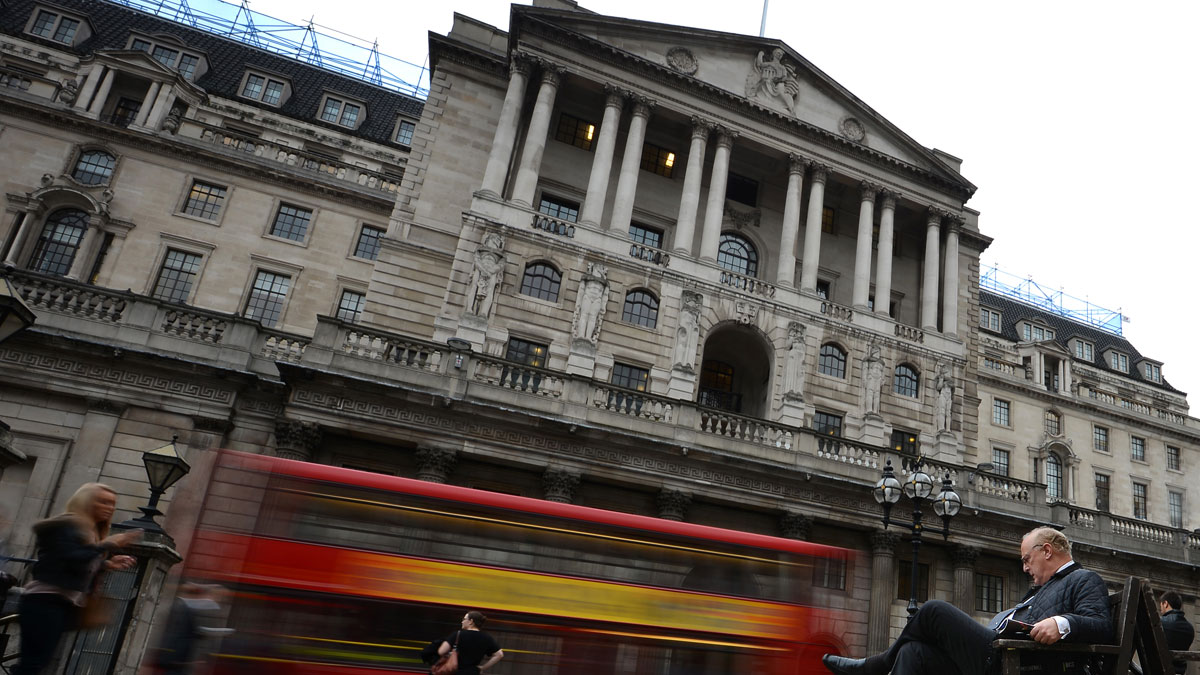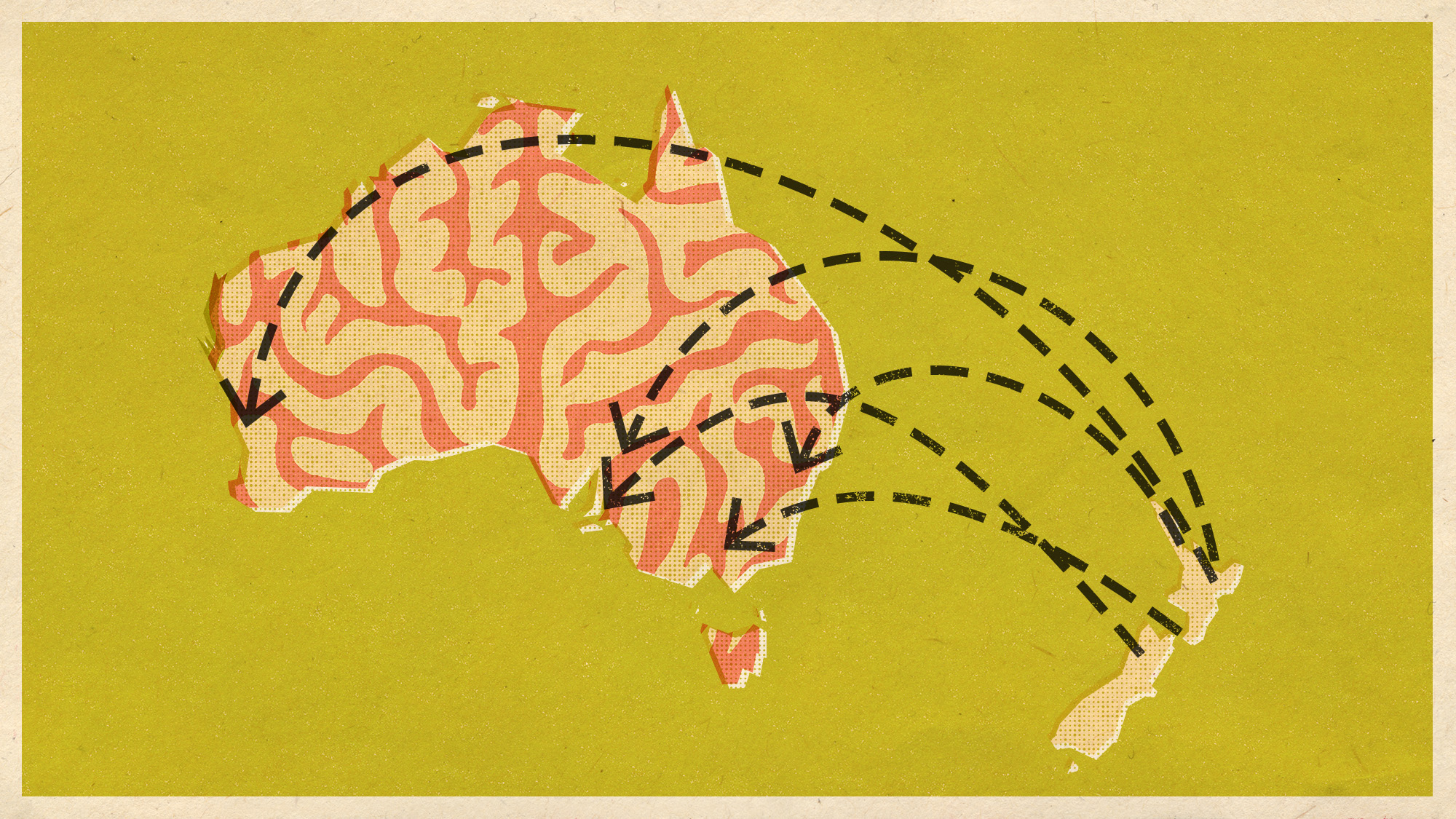What is quantitative easing?
Bank of England expands crisis programme to £300bn amid coronavirus chaos

A free daily email with the biggest news stories of the day – and the best features from TheWeek.com
You are now subscribed
Your newsletter sign-up was successful
The Bank of England has expanded its coronavirus crisis quantitative easing (QE) programme by £100bn, taking the total since March to £300bn.
The move is “designed to oil the wheels of financial markets and maintain low borrowing costs” and was announced after a meeting of the Bank’s rate-setting committee, Sky News says.
Minutes of the meeting show that one member of the eight-person monetary policy committee (MPC), chief economist Andy Haldane, voted against the extension of the QE target.
The Week
Escape your echo chamber. Get the facts behind the news, plus analysis from multiple perspectives.

Sign up for The Week's Free Newsletters
From our morning news briefing to a weekly Good News Newsletter, get the best of The Week delivered directly to your inbox.
From our morning news briefing to a weekly Good News Newsletter, get the best of The Week delivered directly to your inbox.
The Guardian reports that Haldane was “the one dissenting voice” and argued that “the recovery in demand and output was occurring sooner and materially faster” than the MPC had expected.
The minutes also “highlighted downside risks of a deeper crisis for jobs through higher and more persistent unemployment”, Sky News says. Job losses are expected to accelerate as the year progresses and government support for furloughed workers is scaled down.
Andrew Bailey, the Bank’s governor, said: “As partial lifting of the measures takes place, we see signs of some activity returning. We don’t want to get too carried away by this. Let’s be clear, we’re still living in very unusual times.”
What is quantitative easing?
A free daily email with the biggest news stories of the day – and the best features from TheWeek.com
QE is a way of pumping money into the economy in order to boost liquidity for businesses and spending by consumers. It is sometimes referred to as "printing money".
It’s called that because the new money is just that: brand new. It is created by central banks. But it’s also a misnomer because the money that is created is electronic, rather than banknotes.
Put simply the conventional process for this unconventional policy involves the central bank adding money to its own balance sheet, which it then uses to buy financial assets like government bonds from banks and other financial institutions.
By buying those bonds en masse it pushes up prices and drives down yields. As yields are basically the net interest rate, that sends wider borrowing costs lower.
In principle financial institutions who have had bonds bought through QE would use the new money to replace them with other investments - and it is hoped they opt for higher-yielding assets that have a more direct relationship to the "real economy".
In principle that should mean lending more to businesses and people and so stimulating the economy.
–––––––––––––––––––––––––––––––For a round-up of the most important stories from around the world - and a concise, refreshing and balanced take on the week’s news agenda - try The Week magazine. Start your trial subscription today –––––––––––––––––––––––––––––––
What are its downsides?
There are issues with QE, though. By dragging interest rates lower - and especially on assets like government bonds, or gilts - it introduces distortions to the market.
For example, pension funds depend on yields from safer gilts and so the combined effect of loose monetary policy has been to reduce long-term returns projections - and so widen the shortfall between projected assets versus liabilities.
That gives pension trustees a dilemma: push for more cash from sponsoring employers, or invest in riskier assets that could lead to losses.
Individual investors have faced the same challenges and have responded by putting more money to work on markets and in property. The result is asset bubbles and all-time high valuations that seem divorced from economic reality.
So, clearly QE cannot last forever. But timing is everything and a move too soon could result in pressure on fragile companies and households by driving up rates on mortgages and loans.
At worst the knock-on effect could be to choke off the economic recovery.
With US easing there is the added problem that wider rates being lower has had a devaluing effect on the dollar and encouraged huge investment from emerging market economies into US assets.
There are concerns that when QE is withdrawn the debts taken will become unaffordable and so have negative global ramifications. This manifested itself in the "taper tantrum" in 2013, when the first sign of bong "tapering" led to a massive global bond sell-off.
-
 The ‘ravenous’ demand for Cornish minerals
The ‘ravenous’ demand for Cornish mineralsUnder the Radar Growing need for critical minerals to power tech has intensified ‘appetite’ for lithium, which could be a ‘huge boon’ for local economy
-
 Why are election experts taking Trump’s midterm threats seriously?
Why are election experts taking Trump’s midterm threats seriously?IN THE SPOTLIGHT As the president muses about polling place deployments and a centralized electoral system aimed at one-party control, lawmakers are taking this administration at its word
-
 ‘Restaurateurs have become millionaires’
‘Restaurateurs have become millionaires’Instant Opinion Opinion, comment and editorials of the day
-
 The end for central bank independence?
The end for central bank independence?The Explainer Trump’s war on the US Federal Reserve comes at a moment of global weakening in central bank authority
-
 Should Labour break manifesto pledge and raise taxes?
Should Labour break manifesto pledge and raise taxes?Today's Big Question There are ‘powerful’ fiscal arguments for an income tax rise but it could mean ‘game over’ for the government
-
 What are stablecoins, and why is the government so interested in them?
What are stablecoins, and why is the government so interested in them?The Explainer With the government backing calls for the regulation of certain cryptocurrencies, are stablecoins the future?
-
 What's Jeff Bezos' net worth?
What's Jeff Bezos' net worth?In Depth The Amazon tycoon and third richest person in the world made his fortune pioneering online retail
-
 'Brain drain' fear as record numbers leave New Zealand
'Brain drain' fear as record numbers leave New ZealandUnder The Radar Neighbouring Australia is luring young workers with prospect of better jobs
-
 Ghost kitchens are pulling a disappearing act
Ghost kitchens are pulling a disappearing actunder the radar The delivery-only trend is failing to live up to the hype built up during the pandemic
-
 The birth of the weekend: how workers won two days off
The birth of the weekend: how workers won two days offThe Explainer Since the 1960s, there has been talk of a four-day-week, and post-pandemic work patterns have strengthened those calls
-
 Will the UK economy bounce back in 2024?
Will the UK economy bounce back in 2024?Today's Big Question Fears of recession follow warning that the West is 'sleepwalking into economic catastrophe'